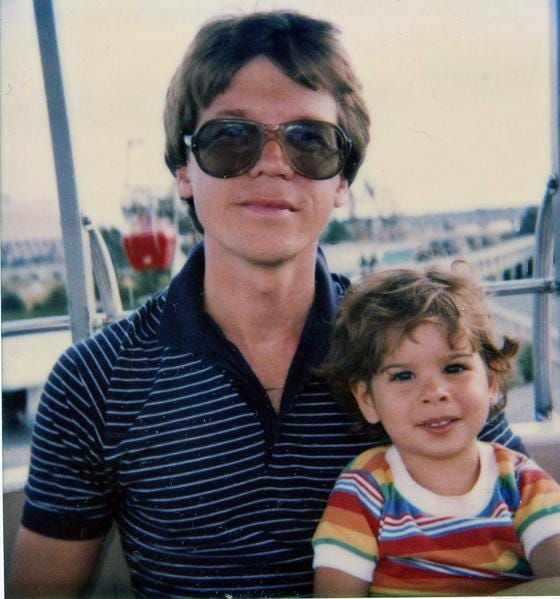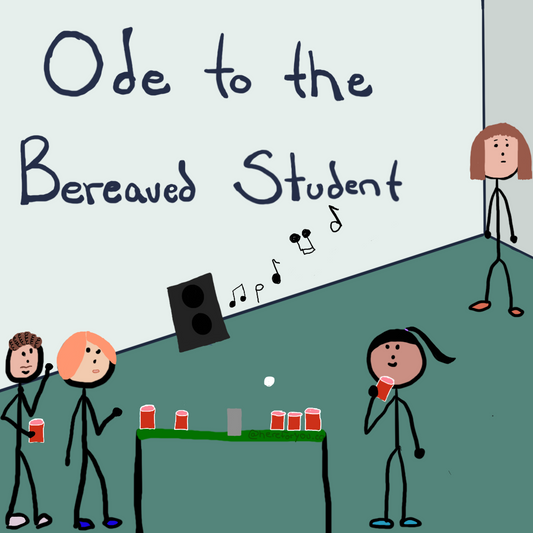
This is angrief — the unique version of anger that you may likely experiences at the depths of your grief.
I am really angry that my sister died, and I often imagine myself shouting a big F*CK YOU to the people who have (usually unknowingly) pissed me off.
It would actually be less of a shout and more of a roar, my voice descending to a pitch I could never achieve naturally. But I haven’t…
…at least not yet.
Angrief…isn’t that one of the 5 stages of grief? (no)
Angrief is not to be confused with one of the five stages of grief AKA the Kübler-Ross model (denial, anger, bargaining, depression, acceptance). While the five stages of grief are now widely (mis)understood to be the way that we respond to the death of a loved one, the model was actually crafted to describe the processing of patients with a terminal diagnosis.
There is nothing tidy about grief.
Many bereaved people do experience the emotions outlined by the stages in some form or another, but it is not a linear process. There is nothing tidy about grief.
There are also those who don’t feel angrief (my husband is one of them!) — even when their loss is out-of-order or premature. I do envy these people because if I could move through life without angrief, I would. But I am not ashamed I have it, and my solace comes from knowing that this feeling is unlikely to last forever.
One Family, Two Grief Rodeos
My father died 13 years before my sister. Her death was completed unexpected in the same way that his death was unsurprising. My dad had been sick for many years, and while I never acknowledged the thought, deep down I knew that he wouldn’t live long.
The circumstances surrounding my father and sister’s lives and illnesses were completely different, and the pain of their deaths knocks the wind out of me in completely different ways.

My sister’s death was 50 years too soon. She had a 21-month-old son who no longer remembers her. We had just entered a new part of our relationship that wasn’t defined by teasing (yes, it took us a little too long to grow out of that phase). My sister died when she was 37.
My dad’s life was limited by pain, discomfort and uncertainty — the unfairness of chronic illness. He had been mysteriously sick for the last three decades of his life. I never knew him as a healthy person, and he never knew me as an adult. He died when he was 54.
There’s no shame in angrief.
I have unwillingly found myself at my second grief rodeo, and while this go-around is even less enjoyable than the first, I am somewhat familiar with the terrain. If it plays out anything like how I’ve known my grief to be, then when my angrief lessens in intensity, it will be a sign that my grief is less raw.
If you miss someone and you feel angrief, you are not alone. There’s no shame in your feelings. Even when you find yourself hoping that tragedy befalls another so that you're not alone in your pain. It is nearly impossible not to be furious when something terrible happens to someone you love. At its core, angrief may simply be a manifestation of the unfairness of life. And sometimes the best help for unfairness is to connect with others who know your pain.
Moving Forward with Pain
I've personally gained a lot from various local grief groups. I attended Compassionate Friends meetings and conferences, The Dinner Party in person and virtual groups, and a Modern Loss grief retreat. Though it may feel like one of the last things you want to do, I always recommend finding a way to connect with others who are living with a similar loss to you. Just being in their presence can be such a help.
PS — as a fan of full disclosure, I will readily admit that I’ve been guilty of every faulty behavior listed in the cartoon above. I am far from perfect. But I am living and learning and hope to do better as I move forward. And I am so sorry to the folks who have wanted to yell a big F*CK YOU to me.
This piece was originally published in July, 2018.



1 comment
Thanks Kellyn. I thought I had moved past the angrief stage. I definitely haven’t though. Thank you for speaking the words on my mind.